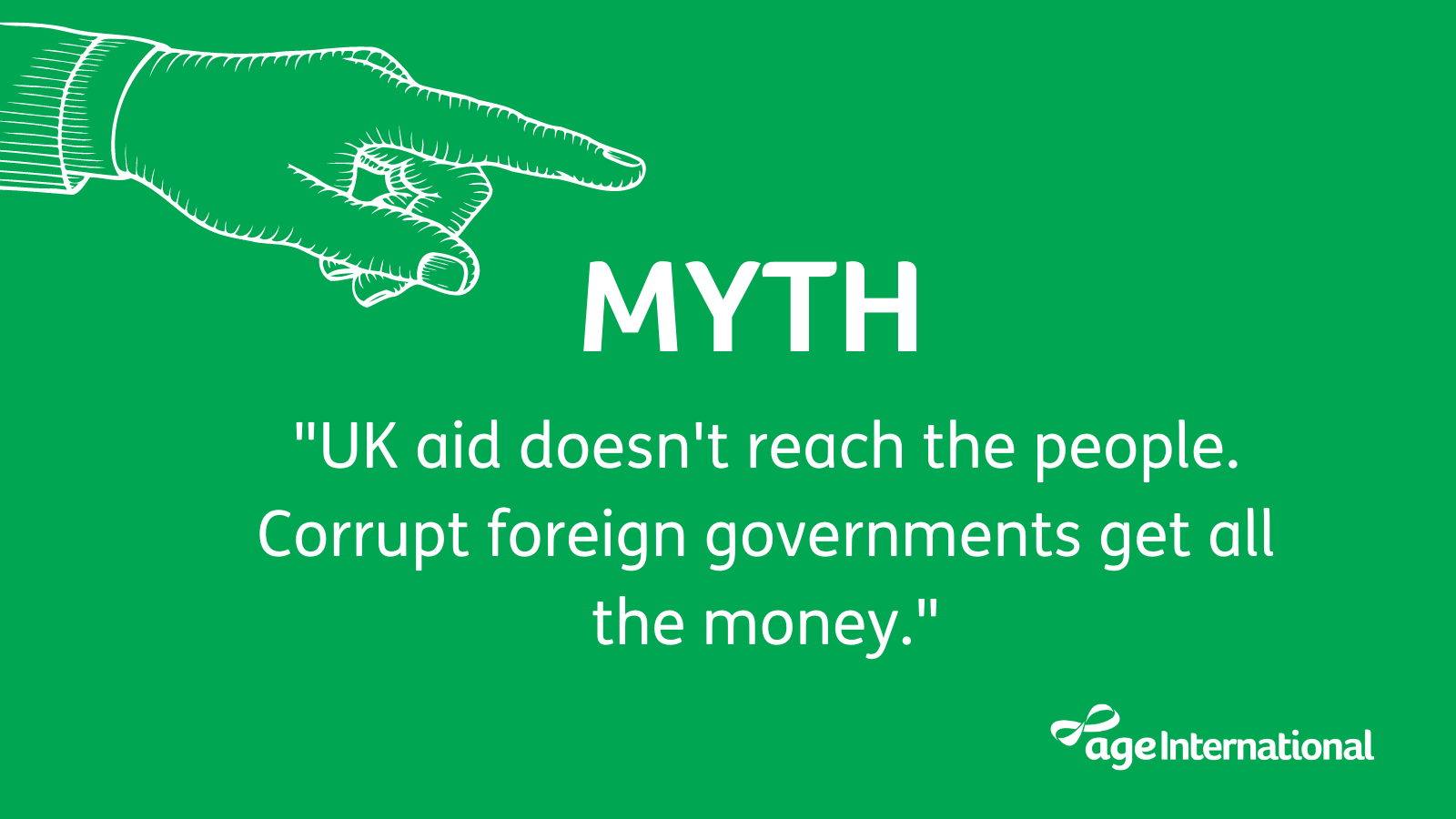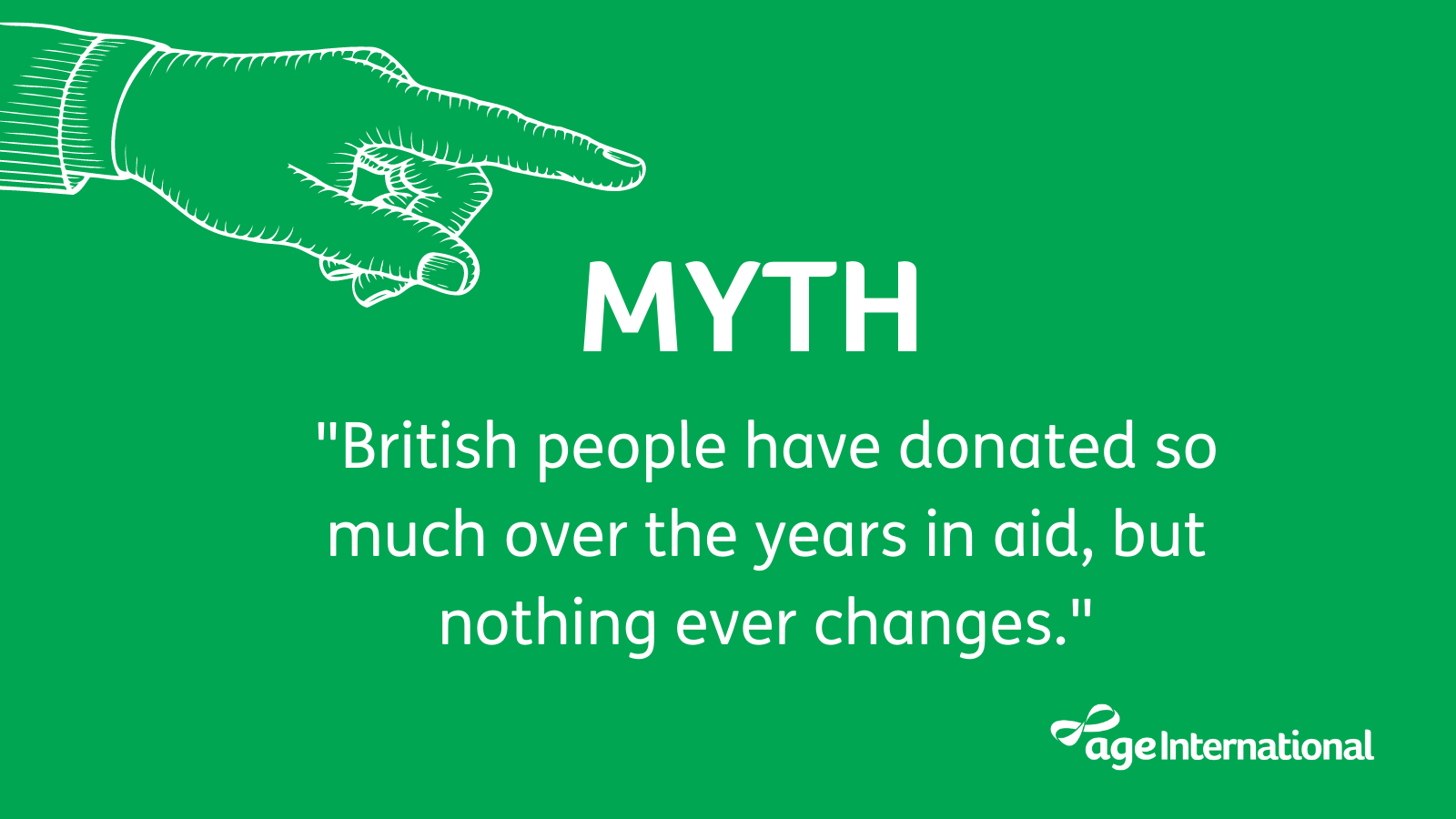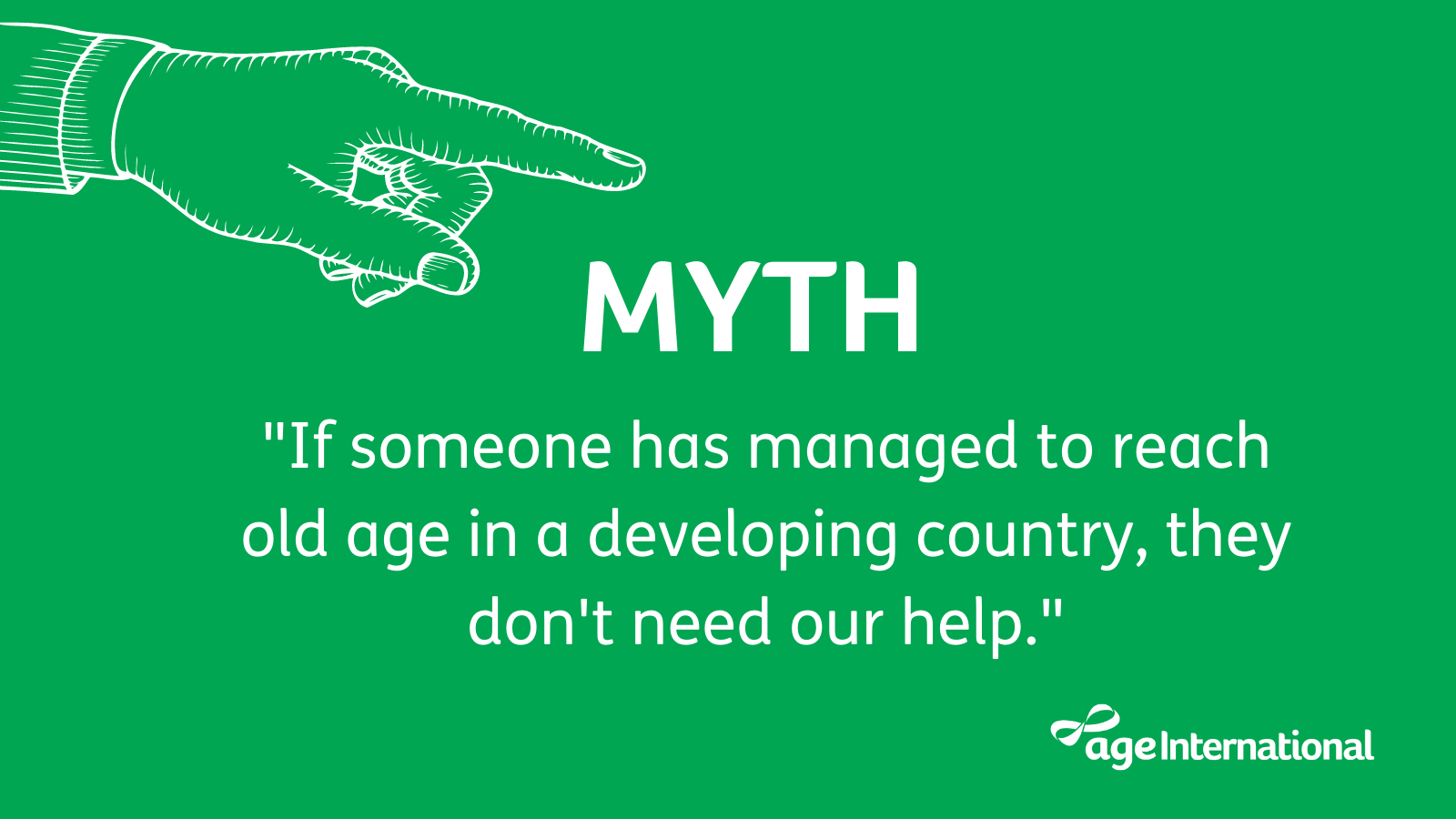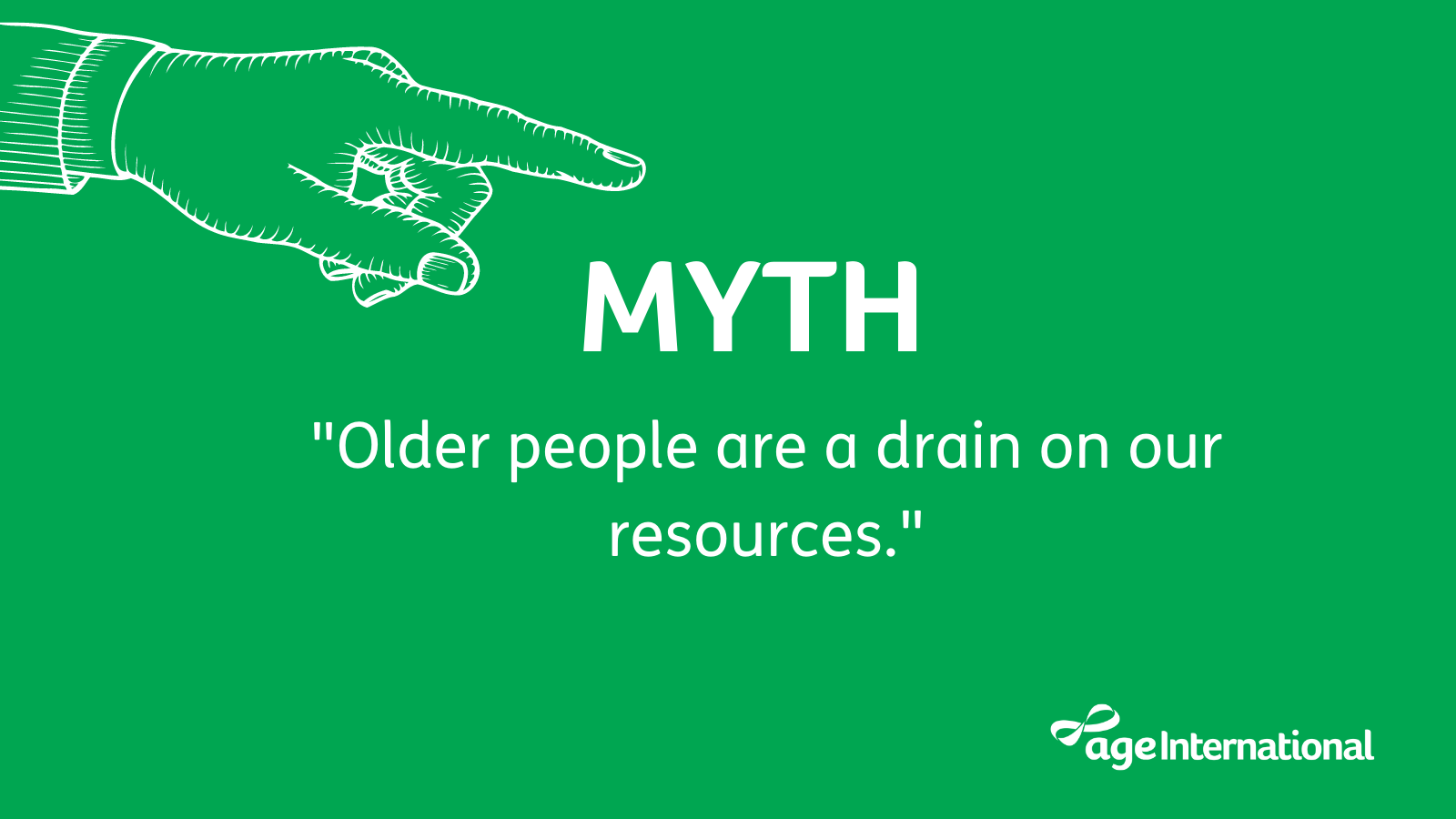Mythbusting with Age International
The UK government’s recent proposal to reduce the UK’s Aid Budget and the subsequent reaction has brought to light a lot of myths and misunderstandings about global aid and our role in supporting older people. In the feature below, we try to address some of the most common myths and explain the facts.

Did you know that much of UK Aid goes to humanitarian and development programmes like ours, with rigorous monitoring and evaluation processes to ensure the funds only go to those in need?
Age International has received UK Aid funding many times over the years. At a national level, our partner HelpAge International has country offices and programme staff who regularly assess programmes, ensuring that they are being delivered and money is being spent for the stated purpose. To receive funds, every local partner must meet certain criteria to ensure money is spent appropriately and to ensure that activities are relevant and sustainable.
On a more local level, we have volunteer Older Citizen’s Monitoring Groups who have been trained to monitor programmes that are being delivered in their communities – they report back to programme staff if there are any problems. More importantly, they also monitor the delivery of programmes by local and national authorities, to ensure that the needs of older people are being met.
At an international level, we have auditors to check our accounts at the end of every financial year. Our latest accounts are available as part of our annual report, which can be viewed on our website here: https://www.ageinternational.org.uk/who-we-are/annual-report-accounts/
We believe the UK can be proud of its role as a world leader in international development, but the Government risks reducing this standing with the recent proposal to cut aid by a third. Read our statement on the proposed cuts here: https://www.ageinternational.org.uk/policy-research/sustainable-development-goals/

We are proud that the UK leads by example in helping people in need around the world. There have been enormous improvements over the past few decades. In 1990 there were 1.9 billion people (36% of the world population) living in extreme poverty. In 2018 this figure was 650 million (less than 9% of the world population).
We believe that we should continue to help people who need support for as long as that help is needed, and we are the only UK charity that specialises in helping older people in low and middle-income countries. Without the help of generous people like our donors in the UK, we would be unable to help thousands of older people and their dependants to afford basic necessities such as food, clean water, shelter and healthcare.

Globally, people are living longer than they ever have before, and 69% of the global population aged over 60 live in low and middle-income countries. We believe older people in low and middle-income countries deserve a break or some form of retirement in the same way as older people do in richer nations.
Unfortunately, it’s a fact that only 1 in 4 older people in low and middle-income countries currently receives a pension. In some countries, pensions do not exist; or they are only available for those aged over 75; or they are only accessible to public sector employees.
In countries where pensions do exist, they are generally not adequate to cover basic costs. Furthermore, some people in later life do not know that pensions exist in their country; or may not have the identity documents required to access them.
Not only this, but many older people also experience abuse and discrimination as they age. In most countries, it is still considered acceptable to deny people work; access to healthcare; education; or the right to participate in government, purely because of their age.
That’s why we, along with our partner HelpAge International, support older people in low and middle-income countries to improve their income, escape poverty, receive the right kind of healthcare, survive emergencies and have their contributions to families and communities recognised and valued.

All people have a right to life and a right to health. This is stated in the Universal Declaration on Human Rights. One’s health and contribution to society cannot be judged on the basis of one’s age. Older people make significant contributions to society, as care givers, knowledge bearers and through their direct contribution to local economies. In fact, a study by the World Health Organisation (WHO) of the UK shows that older workers create a net benefit of $40 billion through the paying of tax, as consumers and through unpaid care.
With increased life expectancy and people living healthier lives for longer periods, the productive contribution of older people is set to increase. This means older people are more likely to make a positive contribution to society and the economy, not a negative one.
 Follow us on social media
Follow us on social media
Keep seeing our stories or ask us a question - connect on Facebook and Twitter.
